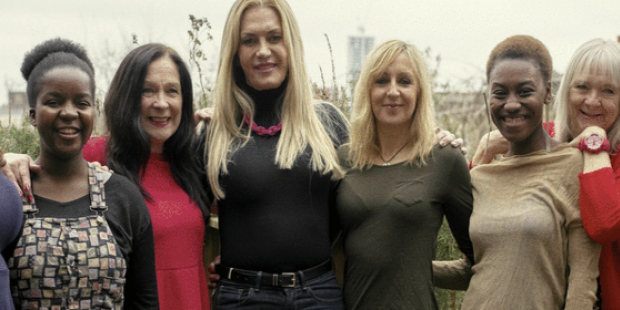2017 has been a seminal year in HIV and sexual health policy, and Terrence Higgins Trust has been at the heart of many successes.
We have seen the start of a much-awaited national pre-exposure prophylaxis (PrEP) trial in England, a three-year national study in Wales and a full roll-out in Scotland.
We welcomed the decision by the Westminster Government to make Sex and Relationships Education compulsory in England, while a influential independent panel in Wales has just recommended that LGBT-inclusive Sexuality and Relationships Education be a mandatory part of the new Welsh curriculum, along with specialist training for teachers.
We also helped to achieve significant changes to bring the rules around blood donations in line with the latest evidence on donor risk assessment.
The latest statistics from Public Health England have revealed that there were 1,122 fewer HIV infections than those reported in 2015 (6,286). This is a reduction of 18% of new diagnoses in just one year. This is largely attributed to fewer diagnoses among gay and bisexual men, particularly in London.
However, HIV remains a serious public health concern across the UK. 12% of people living with HIV remain undiagnosed and the UK has still not met the UNAIDS 90:90:90 targets. (90% diagnosed, 90% on treatment, 90% virally suppressed). The only part of the country to meet these targets is London.
PrEP trial
After several delays, Public Health England announced the start of a three-year PrEP trial in England, with 10,000 places available. The trial aims to answer questions on the extent of need, uptake and duration of use of PrEP within sexual health clinics.
As of November, over 1,900 people were enrolled on the trial across 35 clinics, with all sites expected to be accepting participants by April 2018.
We welcomed the start of the trial but key questions remain, including what happens when places fill up and delays in some sites going live.
More information about the trial, including how to enrol.
In Wales, the government announced the start of a national uncapped pilot for people to access PrEP via the NHS. This means that anyone who is eligible and for whom the drug is clinically appropriate can be prescribed PrEP. Take-up has been encouraging so far; the challenge now is to ensure that all groups who could benefit from PrEP are aware of it and have ready access.
In Scotland, PrEP has been routinely available on the NHS since June and became the first part of Britain to implement this. The hard work continues to ensure England and Wales follow in Scotland’s footsteps and find PrEP a long-term sustainable home on the NHS.
Compulsory relationships and sex education
After 30 years of campaigning, the UK Government finally legislated to make relationships and sex education (RSE) lessons compulsory in England.
The passing of the Children and Social Work Act means that all secondary schools in England will be required to teach relationships and sex education lessons from 2019, while primary schools will be required to teach relationships education.
Our report on LGBT-inclusive SRE showed that 95% of young people did not receive LGBT-inclusive lessons and half of respondents rated the SRE they received as either ‘poor’ or ‘terrible’. We hosted a roundtable in Parliament in September where young people shared their experiences of SRE in school.
Lots of work remains to ensure that schools deliver quality, appropriate and LGBT-inclusive lessons, delivered by confident teachers. Crucially, young people must learn about the modern-day realities of HIV. The UK Government is now consulting on what SRE lessons should look like.
In Wales, we lobbied for LGBT-inclusive SRE to be compulsory within the new national curriculum that is being developed, and contributed to an expert panel review of what ‘healthy relationships’ education should encompass. This panel has recently recommended that the Welsh Government makes Sexuality and Relationships Education compulsory in all schools. The Cabinet Secretary for Education will respond in the New Year.
Blood donation rules
We successfully pushed for changes in blood donation rules, which were introduced across Britain in November. As part of a review into the then existing rules, we called for a reduction in the deferral period for gay and bisexual men, which has now been reduced to three months.
We worked to gather evidence which was presented and considered in the review around former sex workers giving blood, which culminated in our Insight Briefing [PDF] and the subsequent removal of the lifetime ban for former and current sex workers to three months.
Older people living with HIV
In January, we published a ground-breaking (and prize-winning) report, Uncharted Territory uncovering the needs of older people living with HIV.
Based on the experiences of 240 people aged 50 and over, the report highlighted that this population faces poverty, loneliness and discrimination, and that a social care ‘time bomb’ awaits.
We have used the report to campaign for improved services for older people living with HIV, through working with local and national governments, as well as service providers.
Women and HIV
We heard from over 350 women living with HIV as part of a project with Sophia Forum to better understand the needs of women living with the virus. The research, carried out with peer researchers, will be published in early 2018.
HIV manifesto
Ahead of the 2017 general election, we joined forces with 20 other HIV and sexual health organisations to launch the HIV manifesto, calling on the UK Government to stand with people affected by HIV. We welcomed the subsequent commitments in the party manifestos on various HIV issues, including PrEP, SRE and stigma.
Parliamentary relationships
Throughout the year, we strengthened our relationships with decision makers in UK Parliament, Welsh Assembly and Scottish Parliament.
During National HIV Testing Week, more than 15 MPs, including Steve Brine MP and Home Secretary Amber Rudd MP, gave HIV the finger by having a test and meeting people affected by HIV.
We also held three World AIDS Day receptions, bringing parliamentarians together to mark the day and learn more about the current HIV policy challenges.
Our challenges for 2018
The next year will bring some real challenges, in particular around funding for HIV and sexual health services, funding for RSE training and resources, and ensuring momentum remains on getting to zero new HIV infections.
In 2017 we helped lay the foundations to push for even bigger change in the next year. We know the fight against HIV is far from won, and until it is, we will continue to stand by people affected by HIV.




